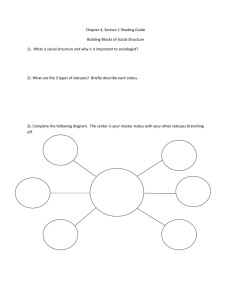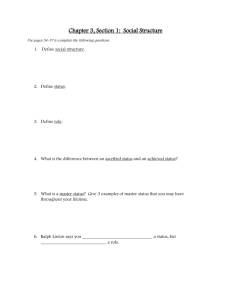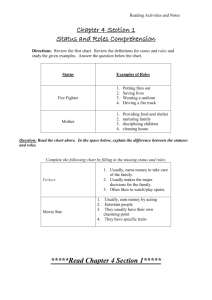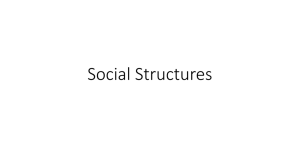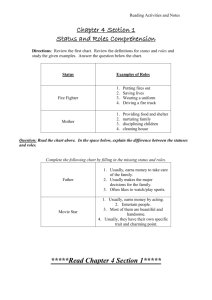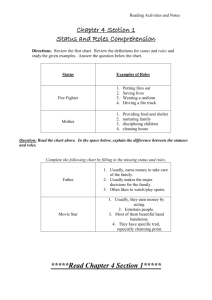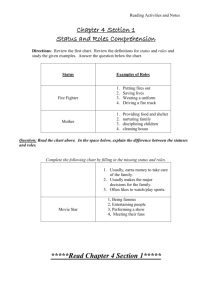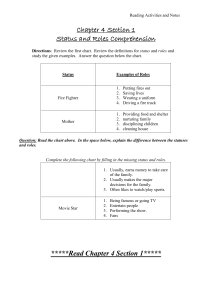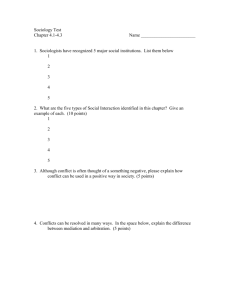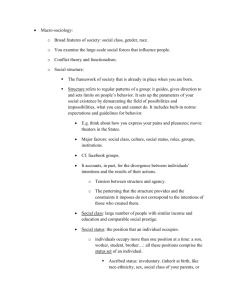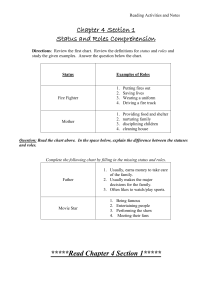Chapter 4.1 Status and Roles
advertisement
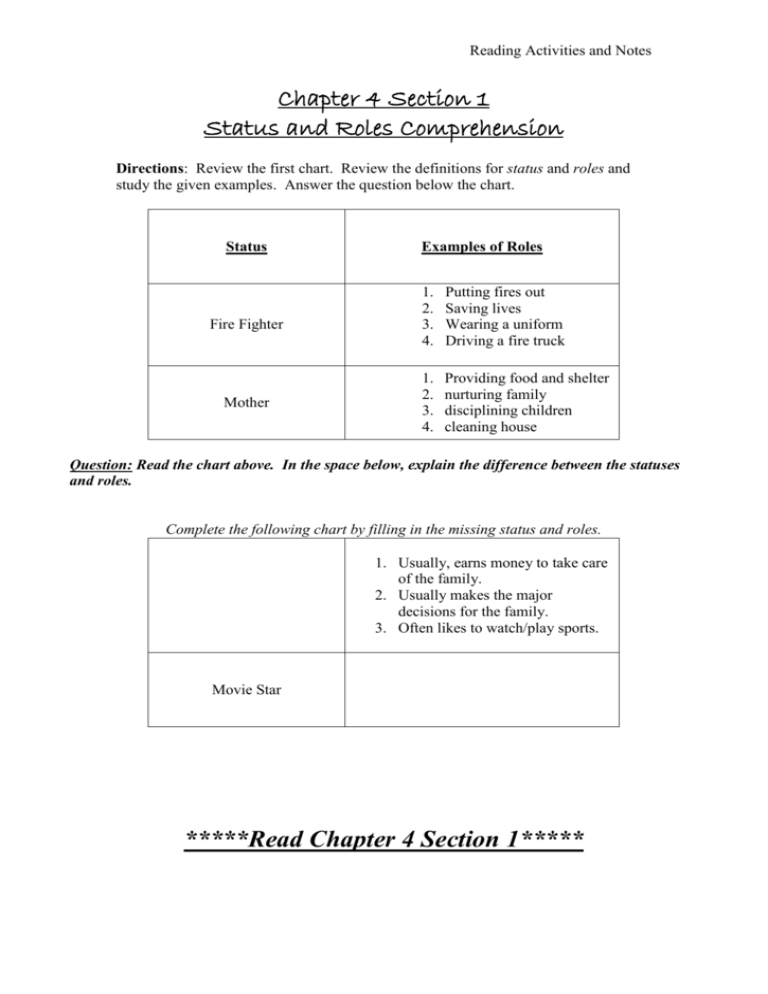
Reading Activities and Notes Chapter 4 Section 1 Status and Roles Comprehension Directions: Review the first chart. Review the definitions for status and roles and study the given examples. Answer the question below the chart. Status Fire Fighter Mother Examples of Roles 1. 2. 3. 4. Putting fires out Saving lives Wearing a uniform Driving a fire truck 1. 2. 3. 4. Providing food and shelter nurturing family disciplining children cleaning house Question: Read the chart above. In the space below, explain the difference between the statuses and roles. Complete the following chart by filling in the missing status and roles. 1. Usually, earns money to take care of the family. 2. Usually makes the major decisions for the family. 3. Often likes to watch/play sports. Movie Star *****Read Chapter 4 Section 1***** Reading Activities and Notes Complete the chart below by reading the directions in each box. Status Examples of Roles State one status you occupy in this box. State 3 roles of the status listed to the left. State one status you occupy in this box. State 3 roles of the status listed to the left. Concept Status Master Status Role Role Set Define the following concepts: Definition Reading Activities and Notes Status/Role Web Charts Directions: For the following status web charts below, type in your master status in the center circle. Then, in the outer circles, state the role set that accompanies the status by describing the roles in the surrounding circles. Do the same thing for your secondary status web chart. Master Status (Role description) (Role description) (Role description) [MASTER STATUS] (Role description) (Role description) Reading Activities and Notes Secondary Status (Role description) (Role description) (Role description) [SECONDARY STATUS] (Role description) (Role description) Define the following concepts: Concept Reciprocal Roles Role Conflict Role Strain Definition Reading Activities and Notes Answer the following questions in the space below each item. 1. What is the reciprocal role example provided in the book? List 3 pairs of statuses that would contain reciprocal roles. Explain why each status has a reciprocal role. 2. In either of your status web charts above, are their any reciprocal roles that help define your status. If so, what are the reciprocal roles? Complete the chart below: Directions: Complete the chart below by providing the book example and your example. In the last two columns describe the differences between Role Strain and Role Conflict. Book Example Your Example Similarity Difference Role Strain Role Conflict Review the two Status Webs Charts above and answer the following questions: Examine your master status. What are the role strains you experience when fulfilling your master status? Explain how you experience this strain. Examine both statuses you identified. What are some possible role conflicts that might occur between these two statuses? Explain these conflicts and why they might happen. Vocabulary Synthesis: For each word, create your own synthesized definition using your own words. Review the VRS and the notes above. Then, synthesize the two definitions to create one definition for the key terms below. Do not use the book for this exercise. Word Role Definition Concept Synthesis Role Expectations: Expectations Ascribed Status Ascribed Status: Reading Activities and Notes Achieved Status: Achieved Status Role Performance: Role Performance Complete the chart below: Book Example Your Example Similarity Difference Ascribed Status Achieved Status 1. In your Status Web Charts above, describe whether your statuses are ascribed statuses or achieved statuses. Explain why!!! 2. In the right column list 3 status examples you have not use above. In the second column, describe at least two role expectations for each example status. Finally, in the third column, explain each status’s role performance problems. Status Role Expectations Role Performance Problems Example: Doctor Example: Treat patients with skill Treat patients with care Honest with patients Example: Doctor focuses on making money and ignores patient needs.
